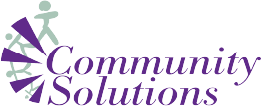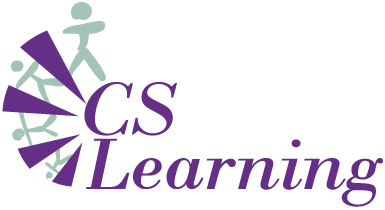January 2024
Mastering Therapy Internship Interviews: A Guide for Aspiring Professionals
As you embark on the path to pursuing your Master’s in Counseling, Marriage and Family Therapy or Social Work, interviews for internships can prove crucial in shaping your career trajectory. With their in-depth insights into prospective employment opportunities and valuable connections in the field, these internships may provide critical hands-on experience that will serve as steppingstones to your professional journey. The following tips will guide you through mental health internship interviews and setting yourself apart from other candidates.
1. Research the internship: Before beginning any preparations for an interview, research the organization and its mission to understand how well it aligns with your career goals. At a minimum, go to the website and read about the organization you are interviewing with. It can be challenging to get a sense of place from a website, but it will give you insight into what the organization values, and how they present themselves. Additionally, you will demonstrate your genuine interest in contributing meaningful work and showcase your dedication to the field of mental health.
2. Prepare a compelling story: Craft a concise elevator pitch that encapsulates who you are as an individual, why you chose this path, and what sets you apart from other candidates. And by concise, it must be concise, 30-45 seconds. Time yourself when you are practicing. Any longer than that, and the interviewer is going to lose interest.
3. Reflect on your skillset and experiences: Identify your strengths and weaknesses to articulate how they may contribute or challenge you in an internship role. Be prepared to discuss specific past experiences that display your ability to take initiative, communicate effectively, and work collaboratively within diverse settings. Oftentimes people will get hung up and say, “well, all I have done before is work as a waiter at a restaurant,” yet I think that is one of the best experiences for the mental health field – you have to work as part of a face-paced environment as part of a team where you are quickly reading people, figuring out what they want and how to get it to them. Most work experiences will have elements that generalize to the mental health field.
4. Gather questions: Demonstrate curiosity by preparing a list of thoughtful questions. Asking about the organization’s internship structure, how is supervision handled, is individual and group supervision guaranteed, what type of trainings are offered, what does a typical day of internship look like, what makes for a successful intern and is the internship paid will not only showcase your interest in learning more but also help gauge their commitment to providing you with the necessary tools to succeed.
5. Interview the organization: You are interviewing for an internship, but you should also be interviewing the organization to see if it is a good fit for you. The questions in point 4 are helpful to that end, but you can also ask questions like: what make this organization a good place to work at, what are three strengths and one weakness of your organization, how does your organization seek to support and develop interns, and what is the role of interns in your organization? Be on the lookout for any trite, cliché or vague answers, those may signal an unhealthy work environment that the interviewer is unwilling to talk about in the interview.
6. Practice and prepare: Conduct mock interviews with a friend or mentor to refine your answers and comfort level in responding to various questions. Practice your body language, voice tone, and enunciation to convey confidence and professionalism throughout the interview process.
7. Dress appropriately: Appearance is an essential aspect of making a strong impression. Most interviews are currently conducted virtually; however appearance is still a major factor in the interview. Dress business casual, be groomed for the day, and dress fully for the interview (it can be tempting to just dress up what is visible on camera, but being fully dressed helps you to feel prepared and confident in the interview).
8. Attend to background, lighting, sound, and connection: An interview is a brief period of time where the interviewer is trying to gain as much information about you in order to make an informed choice. Things that can help or hurt your interview are the specific background you use in zoom (I once conducted an interview with an intern who in the background had their bed piled with laundry – while we may have laundry piles, having them as the background of an interview is not the best choice). I also personally use a ring light and a good mic to ensure the interviewer can fully see my face (it does not have odd shadows), and I am easy to hear. Lastly, a poor internet connection is not a reflection of someone’s character, but it can easily be associated with that in an interviewer’s mind. If you know your internet is spotty, I would use a shared work space, library or relative/friend’s house that has a good connection, test this out beforehand!
Remember, each interview presents an opportunity to learn more about yourself, your interests, and the organizations you hope to work for. Embrace these experiences as valuable steppingstones on your path towards meaningful careers in mental health field.
– Matthew Rensi, LPCC, PhD.
Clinical Learning & Development Manager, Community Solutions



